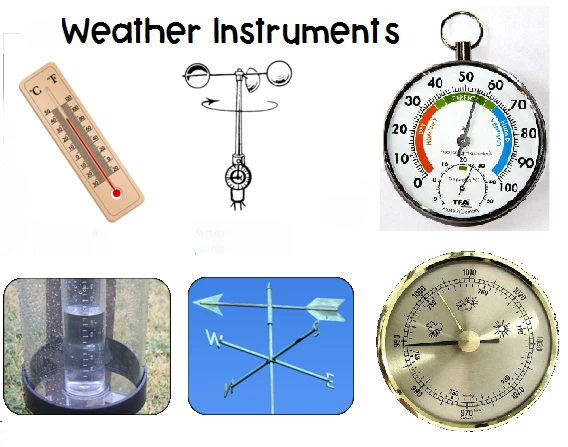Weather Gauges and Instruments for Accurate Meteorological Measurements

# Weather Gauges and Instruments for Accurate Meteorological Measurements
## Introduction to Weather Gauges and Instruments
Weather gauges and instruments play a crucial role in meteorological measurements, providing essential data for weather forecasting, climate studies, and environmental monitoring. These tools help scientists and meteorologists collect accurate information about atmospheric conditions, enabling better predictions and understanding of weather patterns.
## Essential Weather Measurement Instruments
### Thermometers
Thermometers are fundamental instruments used to measure air temperature. Modern digital thermometers provide precise readings, while traditional mercury or alcohol thermometers remain reliable options for many applications.
### Barometers
Barometers measure atmospheric pressure, which is critical for predicting weather changes. Mercury barometers and aneroid barometers are commonly used in weather stations and homes alike.
### Hygrometers
Hygrometers determine the humidity level in the air. These instruments help assess the amount of water vapor present, which affects both weather patterns and human comfort.
## Precipitation Measurement Tools
### Rain Gauges
Rain gauges are specifically designed to measure the amount of liquid precipitation over a set period. Standard rain gauges collect rainfall in a graduated cylinder, while more advanced tipping bucket rain gauges provide automated measurements.
### Snow Gauges
Snow gauges measure snowfall accumulation. Some models melt the collected snow to determine water equivalent, while others use ultrasonic technology to measure snow depth without physical contact.
## Wind Measurement Instruments
### Anemometers
Anemometers are essential for measuring wind speed. Cup anemometers and vane anemometers are among the most common types, while sonic anemometers offer more advanced capabilities for professional meteorological stations.
### Wind Vanes
Wind vanes, or weather vanes, indicate wind direction. These simple yet effective instruments have been used for centuries and remain important tools in weather observation.
## Advanced Meteorological Instruments
### Weather Stations
Modern weather stations combine multiple instruments into integrated systems. These can range from basic home weather stations to sophisticated professional setups that measure temperature, humidity, pressure, wind, and precipitation simultaneously.
### Radiosondes
Radiosondes are instrument packages carried by weather balloons to collect atmospheric data at various altitudes. They provide valuable information about temperature, humidity, and pressure profiles in the upper atmosphere.
## Importance of Accurate Weather Measurements
Accurate meteorological measurements are vital for numerous applications, including agriculture, aviation, marine navigation, and disaster preparedness. High-quality weather gauges and instruments ensure reliable data collection, which forms the foundation of weather forecasting models and climate research.
## Choosing the Right Weather Instruments
When selecting weather gauges and instruments, consider factors such as accuracy requirements, durability, maintenance needs, and intended use. Professional meteorologists typically require more precise and robust equipment than hobbyists or home users.
## Maintenance and Calibration
Regular maintenance and calibration of weather instruments are essential for ensuring accurate measurements. Exposure to harsh weather conditions can affect instrument performance over time, making periodic checks and adjustments necessary.
## Future of Weather Measurement Technology
Advancements in sensor technology, wireless communication, and data processing continue to improve weather measurement capabilities. Emerging technologies promise even greater accuracy and real-time monitoring possibilities for meteorological applications.
Keyword: weather gauges instruments